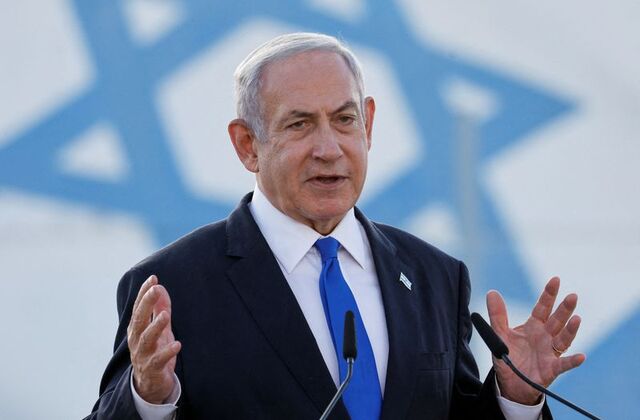In the midst of the Israel-Hamas conflict, former IDF spokesperson Avi Lipkin’s recent comments have reignited tensions and sparked a heated debate online. Lipkin’s statement, made in January during the peak of the conflict, has resurfaced, causing a storm on social media platforms.
In his remarks, Lipkin suggested that Israel’s borders should extend to include Mecca, Medina, and Mount Sinai. This assertion has stirred controversy and drawn condemnation from various quarters, both within Israel and internationally.
The notion of extending Israel’s territory to encompass these sacred sites holds significant symbolic and geopolitical implications. Mecca and Medina are two of Islam’s holiest cities, while Mount Sinai holds religious significance in Judaism, Christianity, and Islam. Lipkin’s suggestion challenges the status quo and raises questions about sovereignty, religious freedom, and regional stability.
The reaction on social media has been swift and polarized. Many users have condemned Lipkin’s remarks as inflammatory and provocative, arguing that such rhetoric only escalates tensions and undermines efforts towards peace and reconciliation. Others have supported Lipkin’s stance, echoing sentiments of territorial expansion and asserting Israel’s right to secure its borders.
The timing of Lipkin’s comments, amid renewed violence in the Gaza Strip, has further intensified the controversy. The ongoing conflict has resulted in loss of life and widespread devastation, with civilians bearing the brunt of the violence. Lipkin’s remarks add another layer of complexity to an already volatile situation, fueling anger and frustration among Palestinians and their supporters.
Critics argue that Lipkin’s rhetoric perpetuates a narrative of aggression and expansionism, which undermines prospects for a peaceful resolution to the Israeli-Palestinian conflict. They stress the importance of dialogue, negotiation, and respect for international law in resolving longstanding grievances and achieving a sustainable peace in the region.
In contrast, proponents of Lipkin’s viewpoint contend that Israel has the right to defend itself and assert its sovereignty over disputed territories. They argue that expanding Israel’s borders would enhance security and safeguard the interests of the Jewish state in a volatile and unpredictable region.
Overall, Lipkin’s controversial remarks have thrust the issue of territorial expansion and religious symbolism into the spotlight, reigniting debate and raising questions about the future trajectory of the Israeli-Palestinian conflict. As the violence in Gaza continues unabated, the need for constructive dialogue and diplomacy becomes ever more urgent to prevent further escalation and promote a just and lasting peace in the region.
You Might Also Like:
Tom Cruise Shifts Focus Away from Scientology and Hollywood After Split with Elsina Khayrova
Conor McGregor and Dee Devlin: A Journey from Plumber to MMA Superstar
Drake Loses Big Bet on Tyson Fury as Kendrick Lamar Celebrates Major Property Purchase
Selena Gomez Shines at Cannes with “Emilia Perez,” Emphasizes Focus on Professional Achievements


